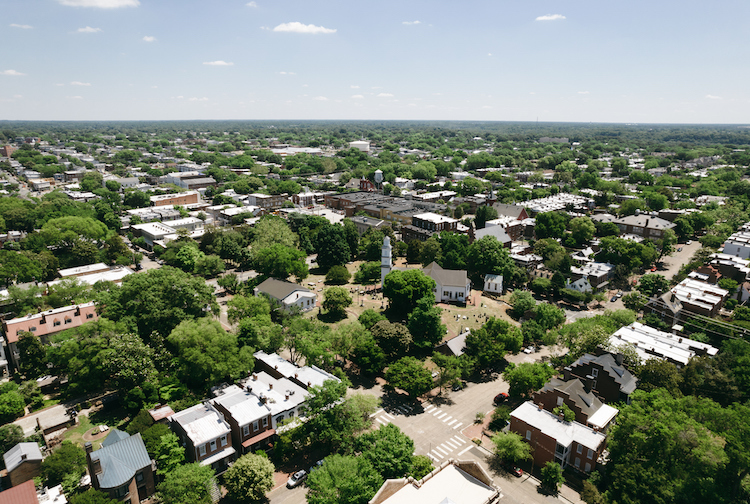
Massey study on neighborhood exposures and racial segregation on cancer risk receives national grant
The $1.7 million grant from the National Cancer Institute will fund a research project over the next five years that aims to better understand cancer risks and health disparities.
September 25, 2023 The grant-funded research will specifically examine the effects of historic racial segregation and neighborhood deprivation on breast, colorectal and lung cancers.(iStock)
The grant-funded research will specifically examine the effects of historic racial segregation and neighborhood deprivation on breast, colorectal and lung cancers.(iStock)
By Blake Belden
Breast, colorectal and lung cancers are significant public health burdens in the United States, accounting for more than 688,000 newly-diagnosed cancers in 2023. According to the American Cancer Society, there are significant racial and ethnic disparities in the likelihood of being diagnosed as well as mortality rates.
While previous research has identified some links between the incidence of these cancers and some patient exposures around the time of diagnosis, long-term cancer risk in different populations has yet to be studied through a holistic approach.
David Wheeler, Ph.D., member of the Cancer Prevention and Control research program at VCU Massey Comprehensive Cancer Center, was recently awarded a five-year, $1.7 million grant from the National Cancer Institute to address this gap in understanding through innovative statistical models and analysis.
“This is a first-of-its-kind comprehensive study investigating the variable patterns of geographic and neighborhood exposures that breast, colorectal and lung cancer patients experience as they change residences over the course of their lives, many years prior to a diagnosis,” said Wheeler, who is also a professor in the VCU School of Population Health’s Department of Biostatistics.
Many tumors develop slowly over the course of multiple decades, and most risk factors for disease vary for individuals over time and location. Therefore, it is becoming increasingly necessary to better understand a variety of factors over long periods of time to effectively identify causal associations between lifetime exposures and cancer development. These include factors such as access to community and economic resources, racial segregation, pollution, and location, among others.
Wheeler and his team will use comprehensive data from state cancer registries in Virginia and Pennsylvania as well as advanced population-based statistical models to conduct a thorough assessment of neighborhood exposures over several decades. Analyzing data from a longer period of time frame could better explain the factors leading to cases of cancer and disparities.
“Our holistic approach could shed light on the most influential cancer risk factors,” Wheeler said. “Understanding the role of neighborhood histories in cancer risk can transform cancer prevention research by identifying societal factors driving health inequity, inform evidence-based policies to reshape structural neighborhood characteristics and advance our potential to reduce disparities in incidence and outcomes for some of the most common cancers.”
Black patients are diagnosed with cancer at later stages and die from the disease at higher rates than other patients. Additionally, census data shows that Black cancer patients live in more disadvantaged neighborhoods than white cancer patients. Wheeler’s grant-funded research will specifically examine the effects of historic racial segregation and neighborhood deprivation on breast, colorectal and lung cancers.
Wheeler was previously awarded more than $1.3 million to better understand environmental, geographic and socioeconomic risk factors that lead to bladder cancer and non-Hodgkin’s lymphoma.



